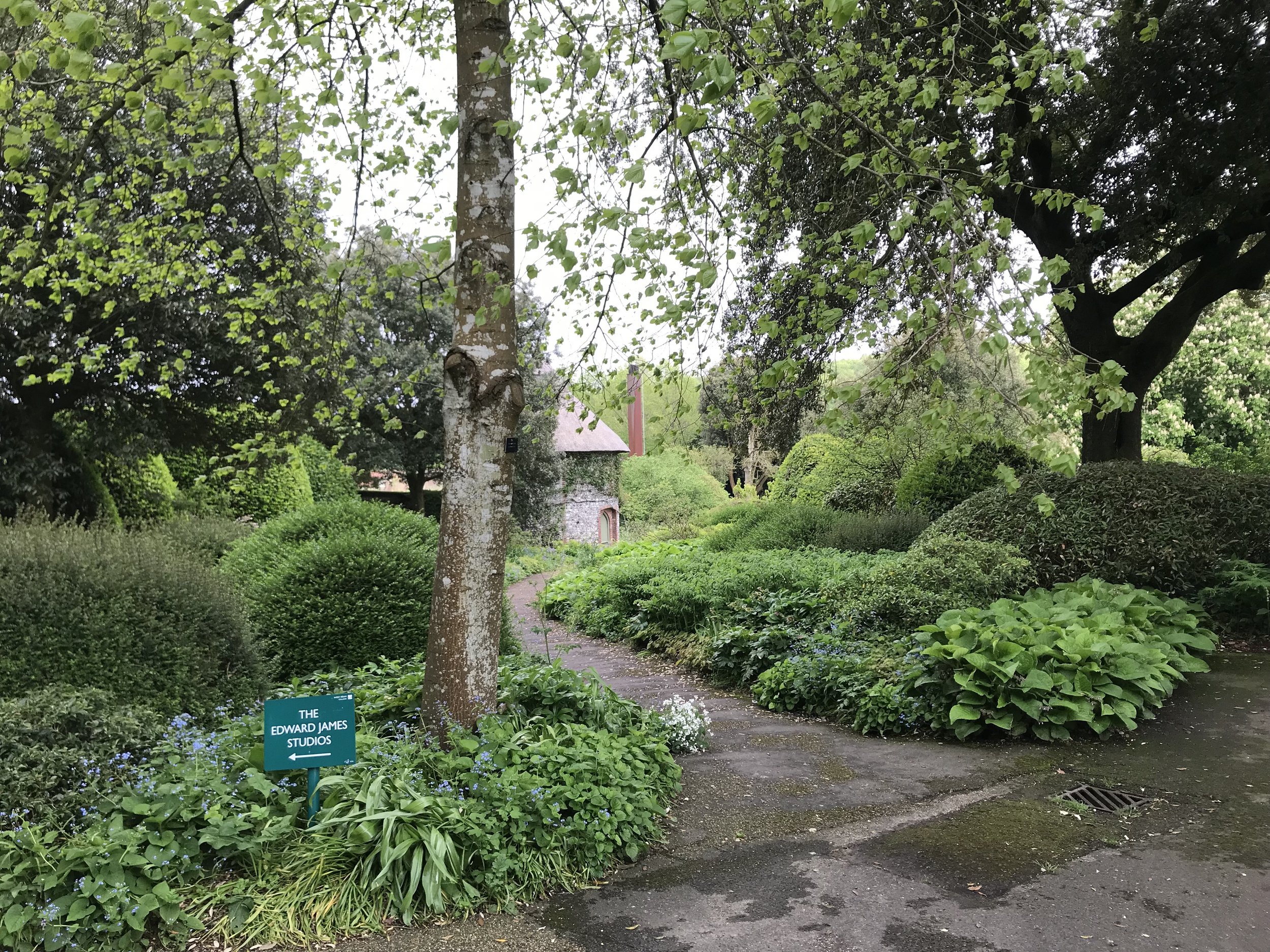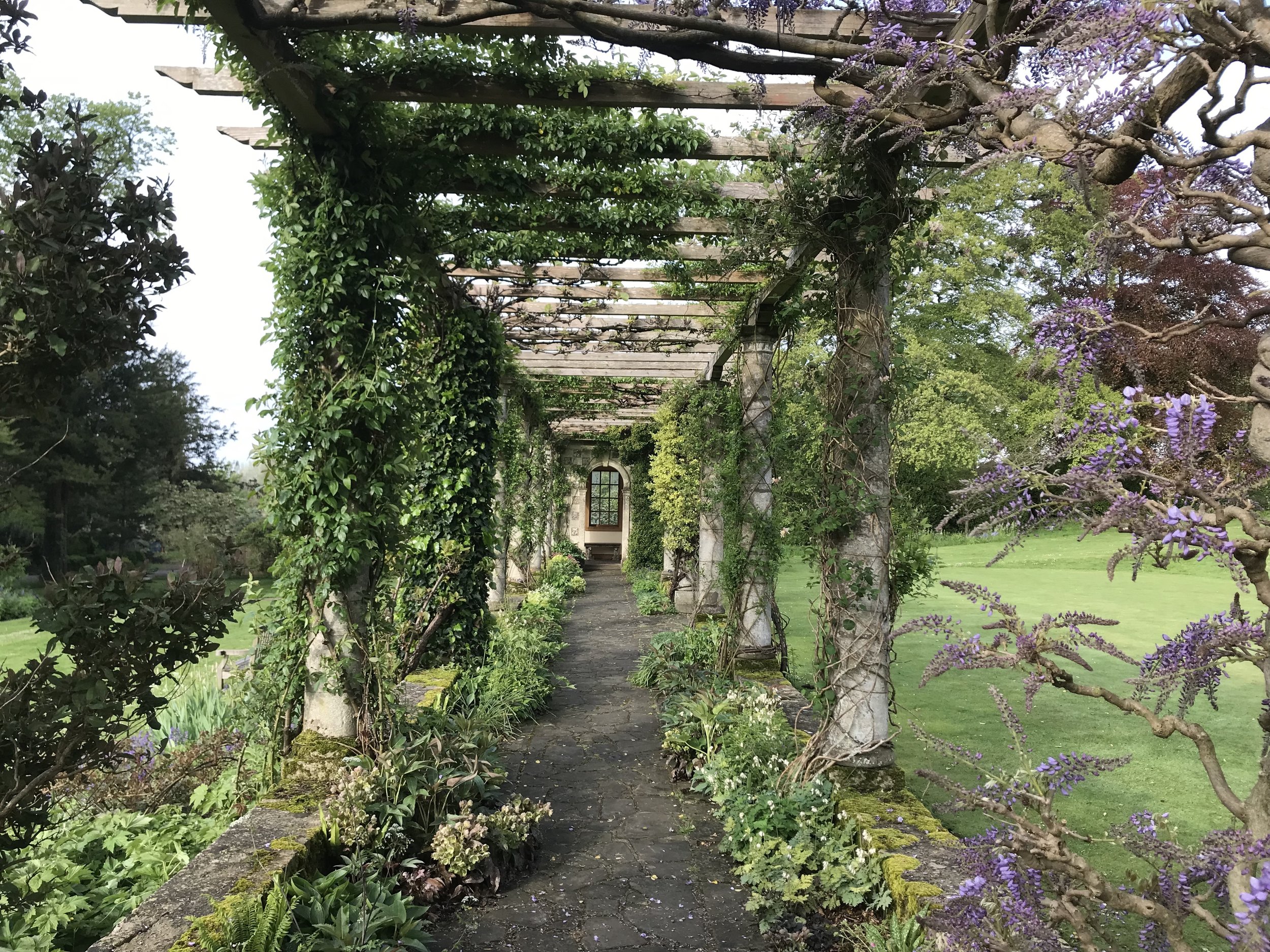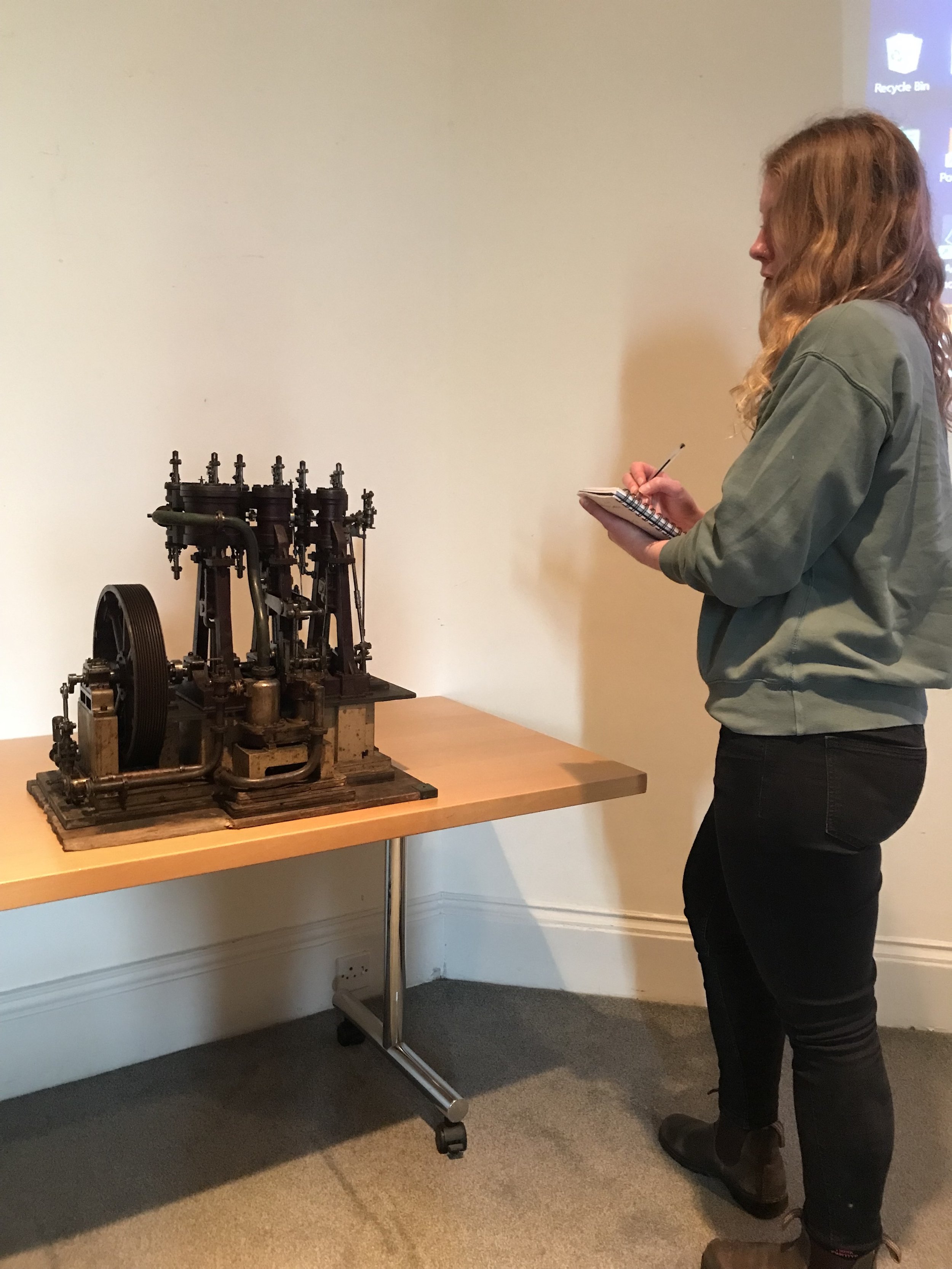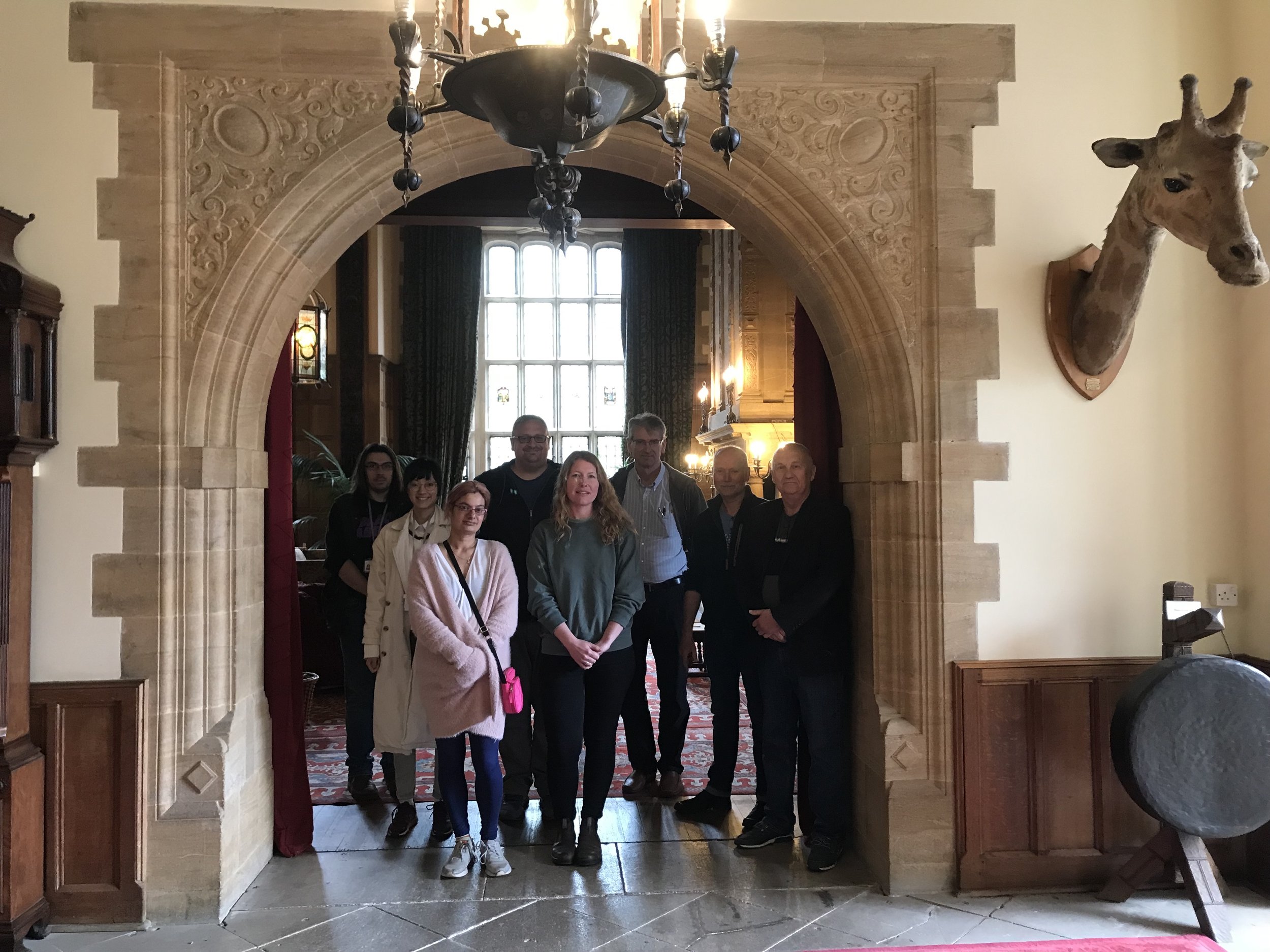A visit to West Dean College of Arts & Conservation
West Dean College of Arts & Conservation
Recently I had the exciting opportunity to attend a course at West Dean College of Arts & Conservation, in Sussex. Situated in a vast country estate, the college was opened in 1971 as a centre for training and education in conservation, traditional crafts and applied arts, by then owner Edward James, and it is now home to a number of conservation specialisms including metal, furniture, books & horology. In addition to teaching foundation degrees, graduate diplomas and masters’ programs, the college also hosts a number of short courses for visiting students such as myself, in both conservation and art & craft skills.
The course I attended was entitled Conservation of Transport and industrial Collections, and was taught by Chris Knapp, who trained in industrial conservation at the Science Museum and is the former Head of Conservation at the Imperial War Museum in Duxford, and Dave Morris, Curator, and Principal Conservator at the Fleet Air Arm Museum.
Over the course of five days, we covered a variety of topics, including conservation ethics, storage & display, and approaches to the documentation of large objects in collections, and the course leaders used a number of different case studies from throughout their careers to illustrate certain concepts. The conversations on ethics were of particular interest to me, as I have been researching conservation ethics for industrial collections, particularly working objects, as part of my internship. The understanding I gained is that ultimately there should be no difference between industrial collections, to fine art or even archaeological collections. While the treatments will vary greatly, the ethical considerations should remain the same, as should the goal, which is to preserve the object with as little intervention as possible. Sometimes this can mean preservation of original material, sometimes it can mean preservation of function, sometimes it can mean preservation of witness marks, and sometimes it can mean all three. In the end the decision on what to preserve will depend on the significance of each object, therefore knowing when to take each approach can often be a challenge, as significance can vary greatly for all who are invested in the care of these collections.
I found these discussions extremely thought provoking, particularly when discussing the challenges sometimes faced where museums are supported by large numbers of volunteers.
There is no substitution for the wealth of knowledge that the volunteers working on industrial collections, those with engineering backgrounds, bring to the table. However, often this comes with a desire to restore objects to working condition, which can be detrimental. Imparting a conservation mindset, and helping staff and volunteers to understand that a less interventive approach is often of greater benefit, will have great impact on the preservation of these collections for the future.
As part of the Powering Our People Project, we will be running workshops at several Industrial Museums Scotland (IMS) sites, to teach staff and volunteers basic conservation techniques and approaches. The hope is that through these workshops, staff and volunteers will be better equipped to care for their collections.
As part of the course, we were also given lectures from West Dean MA course leaders, Kate Jennings, who teaches Conservation of Metals, and Leonor Loureiro, who teaches Conservation of Books and Library Materials, and an opportunity to visit the workshops and studios around the college. I found the metals workshop of particular interest, and thoroughly enjoyed hearing about the different projects the students were working on, particularly where these projects allowed for interdisciplinary work with students from other specialisms. It was also interesting to visit a space that functioned as both conservation lab and metal craft workshop, and to hear about how the MA students are using their metalworking skills within the scope of their projects.
Being able to learn and network in such a beautiful environment was a very rewarding experience, and I am extremely grateful to IMS and AOC Archaeology for generously funding and supporting my attendance of this course. I am also grateful to the Canadian Association of Professional Conservators (CAPC), for awarding me this year’s Emerging Conservators Grant, which also aided in my attendance.





